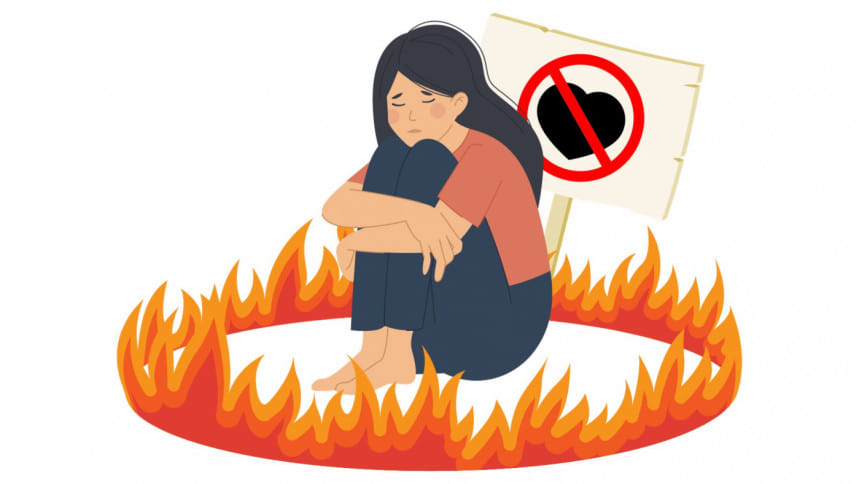Why we find it difficult to accept love at times

Accepting the affection and care of others might be difficult at times. We may perceive it as a weakness, thinking that it makes us a burden, or feel that we are not deserving of such attention.
Emotionally stoic people are rarely able to disclose their internal struggles and vulnerability. Instead, we are more inclined to accept the outcome without question, as if it were expected. Rarely are those unable to accept love truly appreciated for who they are on the inside and the reasons they reject love, not just from their relationships but from themselves as well.
What makes us so unable to receive love despite our apparent ability to attract it? Which underlying causes best explain our actions? What are some of the underlying causes for our rejection of emotionally secure places?
Childhood trauma is a big contributor to this behaviour. If we were raised with love alongside fear or punishment, we confront a dilemma – accept pain for love or escape from suffering and live without love. We build a pattern of drawing affection and then fleeing before any possible harm happens over time. We struggle to accept that love can be painless and grow wary of our relationships, always testing them. This behaviour of ours may lead to dissatisfaction and detachment in relationships.
"My mother doesn't hug me. She doesn't know what to do."
"My father had the kind of anger that all fathers have."
Such realities stick with us for the rest of our lives.
The most difficult aspect of having parents who don't show affection is allowing oneself to be loved. It took a long time for me to comprehend that my friends want to spend time with me, celebrate my birthdays, hug me, and congratulate me when I do something great.
Growing up in a household with emotionally immature parents can be isolating. These parents may appear and act normal, providing food and protection for their child's physical health. However, if parents do not establish a strong emotional bond with their child, the child will be left with a gaping hole where sufficient security should have been. Although it doesn't manifest externally, the loneliness that comes from feeling invisible to others is just as painful as any kind of physical injury.
Another factor that makes it difficult for us to accept love is our dislike of having control. To gain friends and lovers who are drawn to our mystique, we continue to act in an emotionally unavailable manner. But once our peers have gained our trust, every attempt to make a mark is seen as a betrayal. Because of the anxiety about being taken over by someone else, there is a vicious cycle of avoidance and distance.
Some of us are afraid of becoming stuck because we owe too much to our relationships. We make an effort to give more than we receive to avoid feeling compelled or indebted. This dread arises from previous relationships in which we may have been subjected to compulsion, guilt, or threats.
Accepting affection and attention reveals hidden entitlements. As a result, we avoid being on the receiving end and reject our partners' attempts to give.
Those of us who have previously had our boundaries broken are terrified of losing ourselves in a relationship. We conceal our vulnerabilities because it has been altered by friends and partners who have exploited our shortcomings. To protect ourselves, we tend to unintentionally hinder our friends' and partners' attempts to comprehend them on a deeper level.
Some of us act as though we don't need love to prevent being exploited. We provide our love and loyalty without expecting anything in return. To retain a sense of independence and avoid vulnerability, we keep our wants secret, sometimes even rejecting presents we truly desire.
The reasons why some of us find it difficult to open ourselves to love usually have roots in childhood trauma, a fear of losing control, being trapped, losing oneself, or being taken advantage of. Building lasting and meaningful relationships is challenging because our experiences shape how we behave.
Knowing the root reasons can help us, our friends, and our partners deal with these challenges and navigate them, leading to a better and happier life.
Accepting these acts of love and trusting people, even if they are fleeting and even if the people in our lives aren't permanent, feels revolutionary.
Reference:
Psychology Today (March 14, 2014). Why Can't I Let Love In?

 For all latest news, follow The Daily Star's Google News channel.
For all latest news, follow The Daily Star's Google News channel. 








Comments